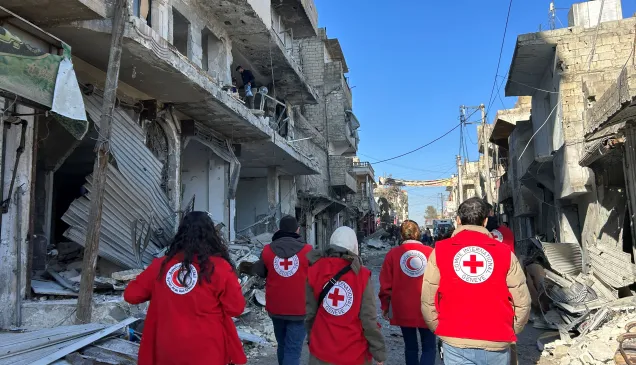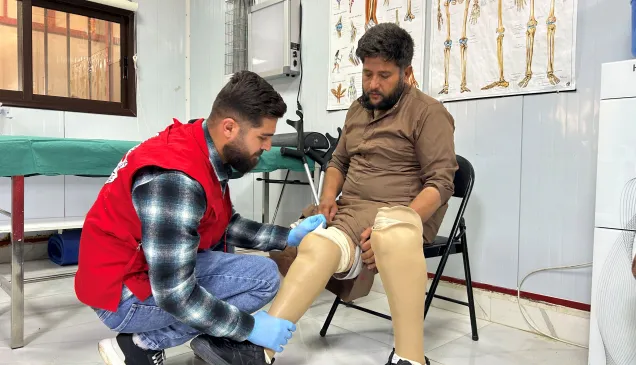Syria: The ICRC's post-release emergency programme
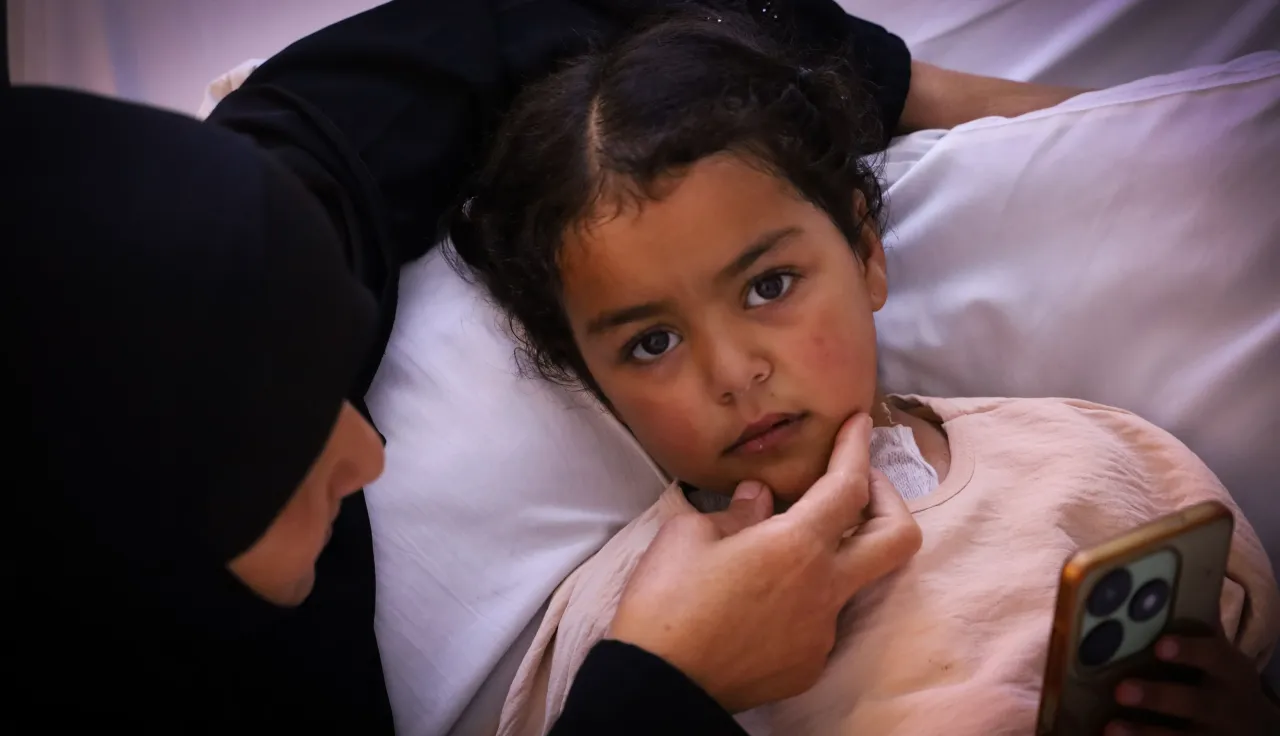
In December 2024, the ICRC launched an emergency programme to support former detainees who had been released from detention in Syria during the events that led to the change of government. The programme aimed to support former detainees who had significant social and health needs, especially those who endured difficult conditions of detention, or had limited access to health care and contact with family.
The post-release emergency support programme for former detainees in Syria
The initiative responded to the urgent needs associated with the release of thousands of people deprived of their freedom and the challenges they faced after their sudden release during the events that led to the change of government in December 2024. As part of this multi-disciplinary emergency programme, the ICRC supported former detainees with any out-of-pocket costs they faced for treating health conditions related to their detention, including surgery, assistive aids and specialist consultations. In some cases, former detainees were referred for ambulance transfers and emergency care. This programme also included physical rehabilitation and prosthesis services, mental health support and transport fees to attend health appointments. These services were designed to address both the immediate and long-term needs of former detainees, assisting them in rebuilding their lives and ensuring their well-being after their release.
Life-Changing Care: the human impact of the post-release support programme
Many things changed in Syria on 8 December 2024, especially for those who were suddenly released from detention facilities. Globally, the time after being released from detention is particularly critical for individuals. Many released detainees face new or worsened health conditions, including infectious diseases, untreated chronic conditions, and mental health challenges. At the same time, they encounter numerous challenges to accessing medical care, such as financial costs, stigma, lack of medical records and access to healthcare services.
Additionally, they must manage pressing priorities like rebuilding relationships, securing housing and economic stability. All these factors were acutely at play for the thousands of individuals who were released from detention in Syria.
Since the programme’s launch in December 2024, more than 500 former detainees have reached out to the ICRC for help with reconnecting to family members, addressing mental health and medical issues, and meeting other essential needs.
Thanks to its extensive experience working in detention, the ICRC was able to quickly develop a Post-Release Support Programme to address the anticipated medical, mental health, and economic needs of these individuals. By collaborating with hospitals, primary healthcare providers, NGOs, and the Syrian Arab Red Crescent, the ICRC was able to ensure timely and quality care for former detainees.
Within seven months, the Detention Health Program has helped 176 individuals access critical medical treatment, with many more currently being assessed.
Furthermore, 140 former detainees received mental health support from psychologists working in policlinics, mental health clinics, and physical rehabilitation centers. These psychologists are trained and supervised by the ICRC’s Mental Health and Psychosocial Support (MHPSS) team to ensure a response that is adapted to the situation and to effectively address the specific needs of former detainees, such as the psychological effects of ill-treatment.
For these individuals, whether it is receiving life-saving surgery, regaining hearing, or recovering the ability to walk independently, this support has significantly improved their chances of reintegrating into their communities and rebuilding their lives.
Rima’s Story: A Second Chance at Life
Through the programme, we came across the heart-wrenching story of Rima, a 4-year-old girl whose life had already been marked by unimaginable suffering.
Rima spent nine long months in a security branch detention facility with her 25-year-old mother, leaving them both physically and emotionally impacted and with no access to the outside world, including family, legal representatives, and health care. Rima was born with a complex congenital heart malformation—a condition that, under normal circumstances, would demand vigilant care, monitoring, and early intervention.
As months passed with no access to medical treatment, Rima’s condition worsened. Her mother, herself a victim of circumstances, could do little more than watch her daughter’s health falter. The walls around them both were oppressive and suffocating.
In December, Rima and her mother were released from detention. Rima was finally able to undergo medical assessment, which revealed an urgent need for cardiac surgery and long-term oxygen therapy to survive. The surgery was deemed lifesaving, but the staggering cost was far beyond what the family could afford. Desperation set in. The family sought help from various charities, but every door closed before them due to the overwhelming cost of the surgery.
The case was then referred to the ICRC by our partners at the Syrian Arab Red Crescent. Her condition was life-threatening but treatable. The doctors were optimistic, and the chances of recovery were high.
Despite the challenges, we saw it for what it truly was: a chance to change Rima’s story, a chance to give her a future.
With the cooperation of Omayad Hospital, whose medical team graciously agreed to waive their own fees, we were able to relieve the family of the financial burden. This partnership, grounded in empathy and shared humanity, enabled us to ensure that Rima and her family had access to the urgent healthcare and treatment they needed.
Her grandmother recalls the unforgettable moment when she received a call informing her that the surgery had been scheduled and would be covered by the ICRC.
For Rima, this isn’t just about a life-saving medical procedure; it’s about reclaiming her childhood and the possibility of laughter and play.
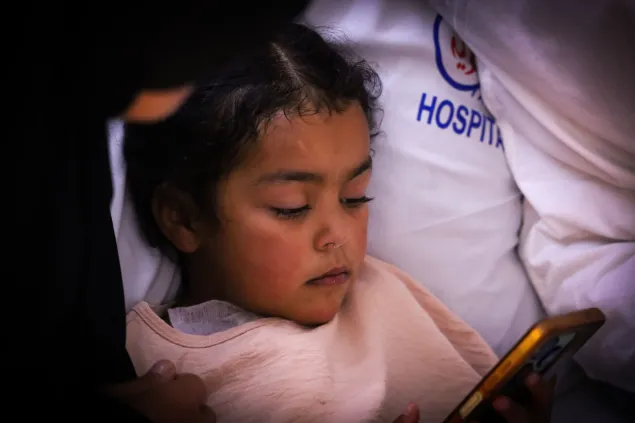
Rima is recovering. Her journey is a reminder that behind every case, referral, and every little resource spent, there is a person with a story, a family, and a life that matters.
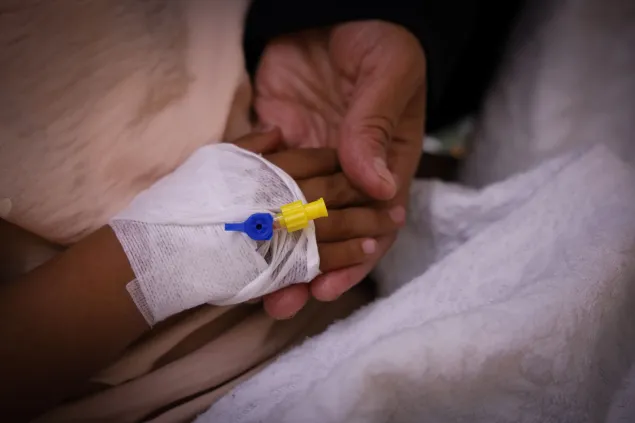
Working on behalf of those deprived of their liberty
Every day, in conflict situations around the world, men, women, and children are detained and deprived of their liberty. They may also lose contact with their families and be subjected to inhumane living conditions, limited access to food and water, or poor health-care services. Although the circumstances of their capture and detention may differ, the humanitarian needs of detainees are universal.
The ICRC's work on behalf of the people deprived of their liberty brings hope in some of the darkest situations.
- Due to the conclusion of this emergency support programme (launched in December 2024), the ICRC has since discontinued its dedicated hotline for former detainees in May 2025.

